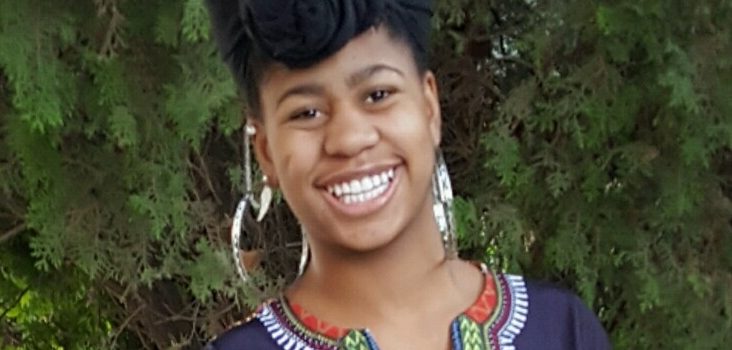
By Ja’Nell Gore
Every year, some local high schools have assemblies recognizing Cinco de Mayo — a holiday largely ignored in Mexico, but held up in America as a day to celebrate Mexican culture with piñatas, tacos and a lot of alcohol. Meanwhile, throughout the whole month of February, my high school has done nothing to commemorate Black History Month.
Schools should be doing something to show appreciation, or even just acknowledge the evolution of black history — but at Bakersfield High School, nothing like that happened last month.
I would have loved to attend an assembly where they focused on my culture and history, opening the eyes of kids who know little about it.
And this desire of mine isn’t uncalled for, especially in a district that has acknowledged it engaged in a years-long practice of disproportionately suspending and expelling minority students, including African Americans. The district was sued, settling the lawsuit last year for more than $670,000. Among the settlement terms? The district must recognize Black History Month and allow students to celebrate.
Instead of taking initiative and organizing such a celebration, they are leaving it up to students. Considering that most students have never planned a school event (or don’t even know they have the option) why would they ‘leave it to the kids’?
None of this would bother me as much if they at least placed a greater emphasis on teaching black history in class.
Schools constantly nag students about the importance of knowing our history, yet they seem to put a dome over the history of African Americans. Black history is very important to some, and not at all relevant to others. However, I believe that black history should be taught more in school.
Less than 15 percent of students surveyed at Bakersfield High School reported that they felt they had learned enough black history in school, according to an informal survey I conducted among 80 students.
Even a few teachers agreed that a greater emphasis should be placed on black history in classrooms.
“Most people are afraid to touch on issues of race because they don’t want to be offensive,” said Sergio Espain, a Bakersfield High School English teacher, explaining why he thinks teachers shy away from teaching black history in February.
“I’ve learned that a lot of teachers have their own reservations and feelings and they don’t want to share that with students —they don’t want to offend them,” Espain said. “I feel that they need to have a more inclusive curriculum something that respects all cultures something that doesn’t exclude or offend.”
Instead, school curriculum touching upon black history often falls upon the old reliables: slavery; civil rights; The Rev. Dr. Martin Luther King Jr.; Rosa Parks.
Part of the reason black history seems to be ignored in schools is because teachers hardly introduce anything new. This can and has affected how some young black children look at their history.
If a black child only knew their history based on what was taught in school, it would be a checkered past of pain and misery. There is so much more to us that they need to know.
Not many students know about Crispus Attucks, the first casualty of the Boston Massacre. While that may seem negative, it doesn’t feel that way to me. It’s the story of a black man killed fighting for our country — something for which people are honored.
Black history is relevant because so many important things today were either founded by or inspired by a black person. Blood transfusions, for example, save about 4.5 million American lives annually, according to Brookhaven National Laboratory. Charles R. Drew, a black man, is the one credited with perfecting the process — but that’s hardly taught in school.
“They should focus more on the subject period. I feel like out of all the years I’ve been in high school it’s only been taught one year, and instead of focusing more on slavery, they should focus on the good things in history.” said Jordan Bell a senior at Bakersfield High School.
However, for students taking Advanced Placement classes, it’s a whole new world. They tend to learn more about black history than college rep and general education students. Why should you have to take an advanced course just to learn about black history? Those of us who are not in AP classes should also be able go into depth on the matter at hand instead of just touching on the surface and moving on.
“I think because my curriculum is set by the college board, it is probably more than a normal amount in there.” said, Mr. Holiday, a AP U.S History teacher at Bakersfield High “That being said I think in a normal class, it really boils down to what the teachers decide to teach and what not to teach, and in that sense there probably isn’t enough in there.”
The schools need to expand their curriculum. Just because our history may be a touchy topic doesn’t mean it shouldn’t be taught. They teach MLK and slavery, but they don’t go into the real meaning of any of our history beyond that point at all.
I would like to see them start talking about more historical black figures in our history classes, even if it’s just in February. At least that would be a start.
JaNell Gore is a student at Bakersfield High School and youth reporter for South Kern Sol, a youth-led journalism program aimed at lifting up youth voice for health and racial equity.